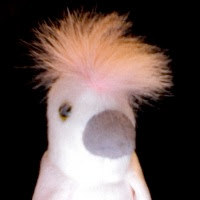The answer is yes. You have to find this on your own. And yes, there is a method, a map to the terrain. It's the kind of thing, where, as your native guide, I eventually have to say, "I can take you this far, but no farther." But even then, you'll be guided by these seven landmarks:
- Develop your personal clarity. Very briefly, this means when something happens, you see what happens instead of seeing what you always see.
- Develop your personal discipline. Discipline means you can follow through with an action despite momentary distractions.
- Build a relationship with your muse. In other words, when inspiration calls, you better have your phone turned on.
- Create some room in your life. If your schedule is perpetually full, opportunity will pass right by you and knock on the next door instead.
- Learn a body of creative techniques and skills. For example, learn rock songwriting on this blog.
- Apprentice yourself to a particular style. For example, practice writing songs in your own personal style until you can do it comfortably and consistently.
- Take the call. After all that preparation, you still have to hear the inspiration, do the work, and create something specific and tangible.
I want to make sure you notice that only steps 5 and 6 say anything about rock songwriting. The rest of the steps are the same no matter what art form or creative endeavor you undertake. This means that being a songwriter is surprisingly like being a novelist, a sculptor, or a dancer. You face most of the same challenges as a cartoonist, a filmmaker, or an inventor. Any artist is your kindred spirit, and you can learn valuable and relevant lessons from any creative field.
I'll soon have more to say about this roadmap. But I also need to cover chords, melodies, scales, phrases, rhythms, rhymes, hooks, mood, metaphor, voice, and narrative. All in good time.


No comments:
Post a Comment